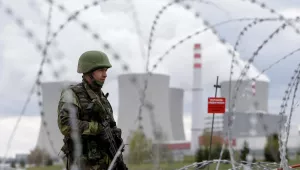Mideast Security and Policy Studies
Introduction
For the past 15 years, Israel's focus on the Iranian nuclear program has been nearly all-encompassing, eclipsing virtually all other threats. A nuclear Iran would undoubtedly pose a severe threat to Israel, indeed, possibly even an existential one. The preoccupation with Iran, however, may have distracted Israel from another threat, one which may be no less likely and actually far more difficult to counter; nuclear terrorism.
Experts and policymakers are divided on the probability of nuclear terrorism, much as they are on the likelihood of Iran using nuclear weapons, should it succeed in attaining them. On one issue, however, they are in agreement; the threat of nuclear terrorism is not just a mirage. The risk is real, and cannot be discounted or wished away.
The following study focuses on the threat of nuclear terrorism facing Israel. It begins with an overview of the nature of the threat, before turning to the potential perpetrators of nuclear terrorism against Israel, possible delivery mechanisms and targets, and the specific scenarios under which the threat to Israel might materialize. The study then presents possible policy options for Israel to deal with the threat, both unilaterally and in conjunction with the United States.
"According to reports since 2003, the threat of nuclear terrorism is growing. For example, the 2003 US National Strategy for Combating Terrorism warned that the risk of nuclear terrorism has increased significantly and that it posed one of the greatest threats to the national security of the US and its allies. The 2006 report stressed that weapons of mass destruction (WMD) terrorism poses one of the gravest threats. The 2008 report of the Congressionally appointed Commission on the Prevention of Weapons of Mass Destruction Proliferation and Terrorism warned that the danger of nuclear terrorism is growing and, in the absence of urgent and decisive international action, that nuclear or biological terrorism is likely to occur somewhere in the world by the end of 2013.
Presidents George Bush and Barack Obama have both termed nuclear terrorism the greatest threat facing the United States. Indeed, President Obama will even convene a global summit focusing on the threat of nuclear terrorism in April 2010. The Director of National Intelligence, John Michael McConnell, testified before Congress in February 2008 that al-Qaeda and other terrorist groups continue to seek nuclear weapons. Former US Secretary of Defense William Perry has warned that the probability of a nuclear terrorist attack in the next 10 years exceeds 50 percent, a view shared by Harvard expert Graham Allison. US Defense Secretary Robert Gates stated in January 2010 that "the thought of a terrorist ending up with a weapon of mass destruction, especially nuclear" would keep him awake at night.
The International Atomic Energy Agency (IAEA) has documented 18 cases of theft involving weapons-usable plutonium or highly enriched uranium (HEU), and there have been hundreds of proven cases of theft of nuclear materials around the world. In the 12-month period ending June 30, 2008, nearly 250 thefts of nuclear or radioactive materials were reported, although the amounts were small, prompting the head of the IAEA to warn that "the possibility of terrorists obtaining nuclear or other radioactive materials remains a grave threat." During 2007–2008, al-Qaeda and the Taliban are reported to have launched three terrorist attacks against Pakistani nuclear sites...."
Continue reading: http://www.biu.ac.il/SOC/besa/MSPS84.pdf
Freilich, Chuck. “The Armageddon Scenario: Israel and the Threat of Nuclear Terrorism.” Begin-Sadat Center for Strategic Studies, April 2010
The full text of this publication is available via Begin-Sadat Center for Strategic Studies.




